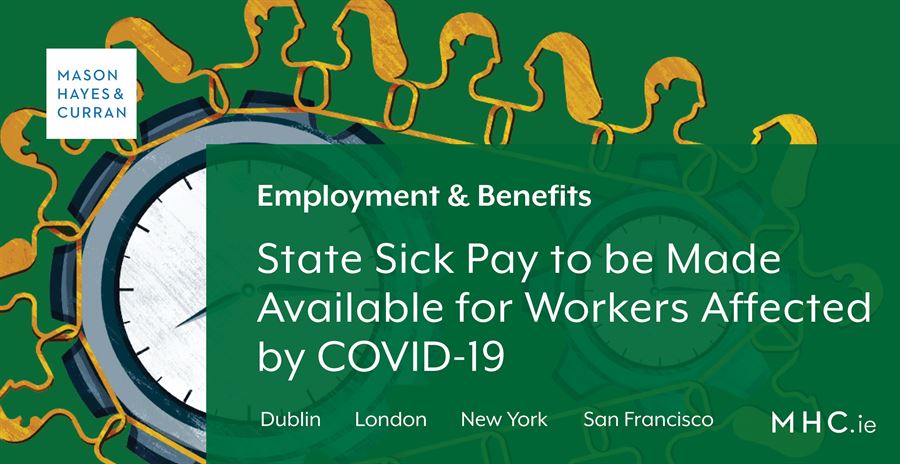
Following a meeting of the Cabinet Sub-Committee, which was set up in response to the outbreak of Covid-19 in Ireland, it was announced by Taoiseach Leo Varadkar that emergency legislation will be put through Dáil Éireann next week. The new legislative measure will provide for the following:
-
The rate of State sick pay will be increased from €203 per week, the current maximum, to €305 per week, for up to two weeks absence with medical certification.
-
Sick pay will be payable from the first day of absence i.e. the usual 6 day waiting period will be waived.
-
State sick pay will be available for the self-employed.
-
A minimum number of PRSI contributions is not required in order to be eligible for the payment.
-
All other existing State sick pay arrangements will continue to apply, including payments workers receive in respect of dependent adults.
-
State sick pay benefit may be made payable retrospectively to the date of the announcement.
Comment
The Government has put forward these measures relating to State sick pay to address concerns that workers may not absent themselves from work where they are at risk of/or have Covid-19 because they will not be paid for such absence.
The Government measures do not deal with voluntary self-isolation, where a worker is not medically certified as being required to do so.
If employers decide to support voluntary self-isolation by paying workers who self-isolate where the worker is not medically certified, they could consider adopting a self-certification type approach. This could entail requiring workers to outline the basis on which they reasonably believe that they should voluntarily self-isolate. Such basis could include for example close contact with a person with the virus; a person from a country with prominent clusters of the virus; and/or the worker being a vulnerable person as a consequence of an underlying medical condition etc. to facilitate the employer in deciding if the voluntary isolation (and consequently payment) by the employer is reasonable in the circumstances.
For more information on this COVID-19 development, contact a member of our Employment & Benefits team.
The content of this article is provided for information purposes only and does not constitute legal or other advice.
Share this:






